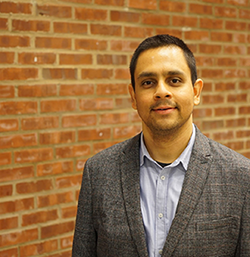Data-driven bottlenecks analysis in factory
The Sustainable Transformation Seminars spring 2022 series, starts 18 March. The first of four seminars is held by lecturer Mukund Subramaniyan on "Data-driven bottlenecks analysis in factory". The format is 25 minutes presentation and 20 minutes of guided and open discussion with a KTH moderator/host.
Time: Fri 2022-03-18 12.15 - 13.00
Location: Online
Language: English
Participating: Mukund Subramaniyan
Contact:
The Sustainable Transformation Seminars Spring 2022 series will be held monthly a Friday each month. The seminar series will continue to be online, with the hope they can turn into physical seminars as well in the future.
About the seminar
Manufacturing companies can now install new, cheap, efficient, and fast algorithms that analyze the bottlenecks. The algorithms search and disclose machinery problems in the production line in a way that wasn´t possible before.
Many engineers have spent a lot of time searching for bottlenecks and making ambiguous experience-driven decisions. Now we can change this situation using digitalization and data science solutions. By analyzing the digital data of the factory using data science techniques, we can quickly identify the bottlenecks. It can also prescribe the necessary elimination actions. All these things happen in less than a second. On top of that, it´s also possible for the tool to look into the future and predict bottlenecks to come.
All these means not only a smoother, faster, and more efficient production, it is also creating a more predictable, safe, and the better working environment without surprises. To explain the tool, you can say it is like a GPS for someone looking for the best way to go by car. The GPS eliminates obstacles and blind alleys.
About Mukund Subramaniyan

Mukund Subramaniyan is working as a consultant in the interesetcion of manufacturing and AI at Capgemini AB. He is from Göteborg, Sweden. Mukund has 10+ years of experience in automotive manufacturing and has built 15+ data-driven products helping shop floor decision-making. He has a Ph.D. in manufacturing engineering from Chalmers, where he also earned his master's degree in production engineering.

